We Need to Talk About RA Fatigue: Results From Our 8th RA In America Survey
Fatigue is a symptom of rheumatoid arthritis (RA) that affects various aspects of life. RA fatigue is more than “just tired.”
Fatigue brings not only severe exhaustion but also decreased mental clarity and whole-body heaviness that doesn’t go away with sleep. Here is what we’ve learned about RA fatigue in our 8th Annual RA In America Survey and what community members are doing to cope with this debilitating symptom.
Experiencing RA fatigue
Why does RA fatigue happen? Believe it or not, many factors play a role in RA fatigue aside from increased RA disease activity. Other factors include depression, anemia, thyroid conditions, infections, medication side effects, lack of sleep, and low levels of vitamin D.1
Fatigue was one of the top three symptoms reported by the community at 90 percent, followed by joint pain (90 percent) and stiffness (88 percent).
The impact of fatigue on work & career
Employment is an important part of providing for our family and loved ones. For some, their jobs and careers are a part of their identities. But when fatigue is a constant, it’s increasingly challenging to show up physically or even mentally. 55 percent agreed* that fatigue interferes with their responsibilities.
Because symptoms like fatigue are sometimes invisible, many in the community often feel misunderstood by their employer. As one person shares, “I gave up my job because my employer did not understand or care about this disease with few physical signs to the normal person.”
Social life, hobbies, and family
The impact of RA fatigue doesn’t stop at work, career, or daily responsibilities. Fatigue also finds its way into a person’s social and family life. When combined with pain, many people may set aside their favorite hobbies or activities in order to rest. 59 percent* said that fatigue interfered with their family and social life.
Doctors agree on fatigue symptoms
Sluggish, weary, lethargic - sometimes, these words aren’t enough to capture how RA fatigue makes us feel. The source of fatigue is even tougher to pinpoint. “Is it tiredness? Maybe I didn’t get enough sleep? Did I overdo myself a few days ago? Is it all in my head?” But there is a bit of good news - your doctors are listening! Although it’s complicated for patients to describe fatigue, doctors recognize that fatigue is a bothersome symptom of RA.
Hope for the future
Having a doctor who understands you - even when it’s challenging to explain exactly how you are feeling - is a great start. Healthcare providers help us unlock ways to achieve better health. Although only 16 percent of respondents are satisfied with their current treatment plan, 72 percent are comfortable discussing all aspects of their RA with their provider and 64 percent are satisfied with the care that they receive.
Tips for getting a hold of RA fatigue
Talk with your healthcare provider about RA fatigue. They may be able to address other health issues that contribute to fatigue like:1
- Review or adjust medications
- Discuss medications like antidepressants that may help with physical tasks during the day
- Discuss sleep aids that may help you get a good night’s rest
- Suggest lifestyle changes that may improve your energy such as manageable ways to maintain physical activity
You can:1
- Make a to-do list and cross off the least important things
- Find small ways to stay physically active
- Maintain a balanced nutrition. Protein helps build strong muscles and complex carbs are great for energy
- Check out CBT (cognitive behavioral therapy) to cope with the impact of fatigue on mental health
- If you’re comfortable, talk to your employer about adjusting your hours
- Ask for help from a friend or family member that you trust
* Top 2 box on a 7-pt. scale
The 8th Annual RA In America survey was conducted online from April 6 to June 25, 2020. A total of 3,511 people completed the survey.
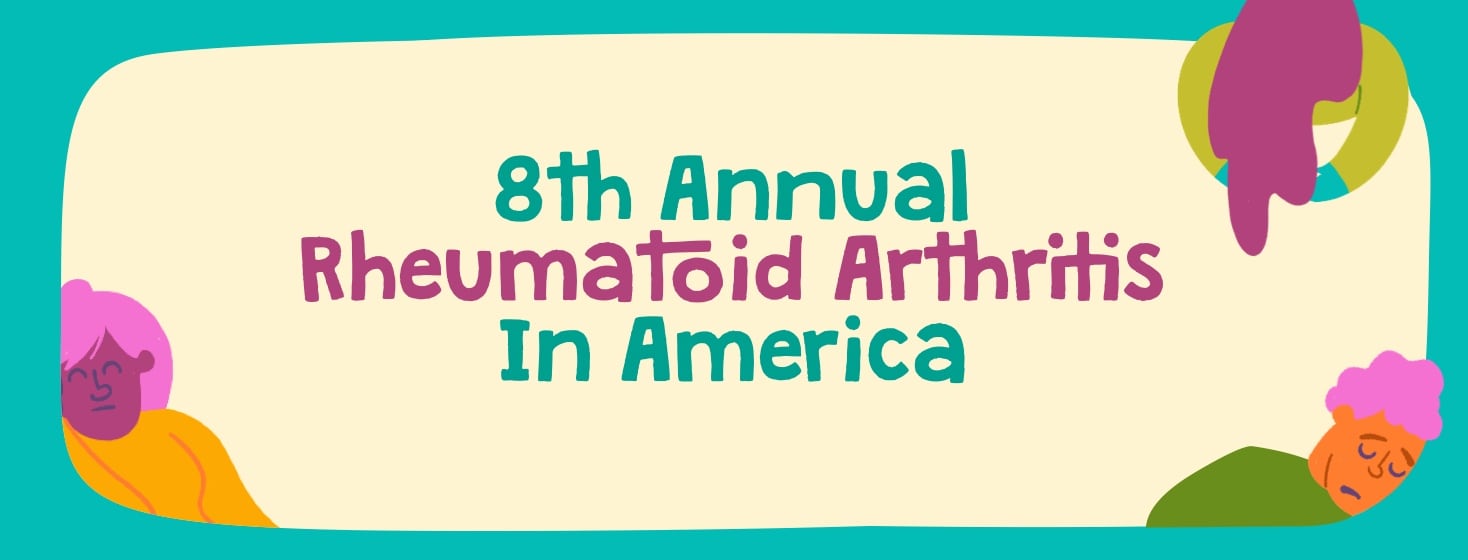
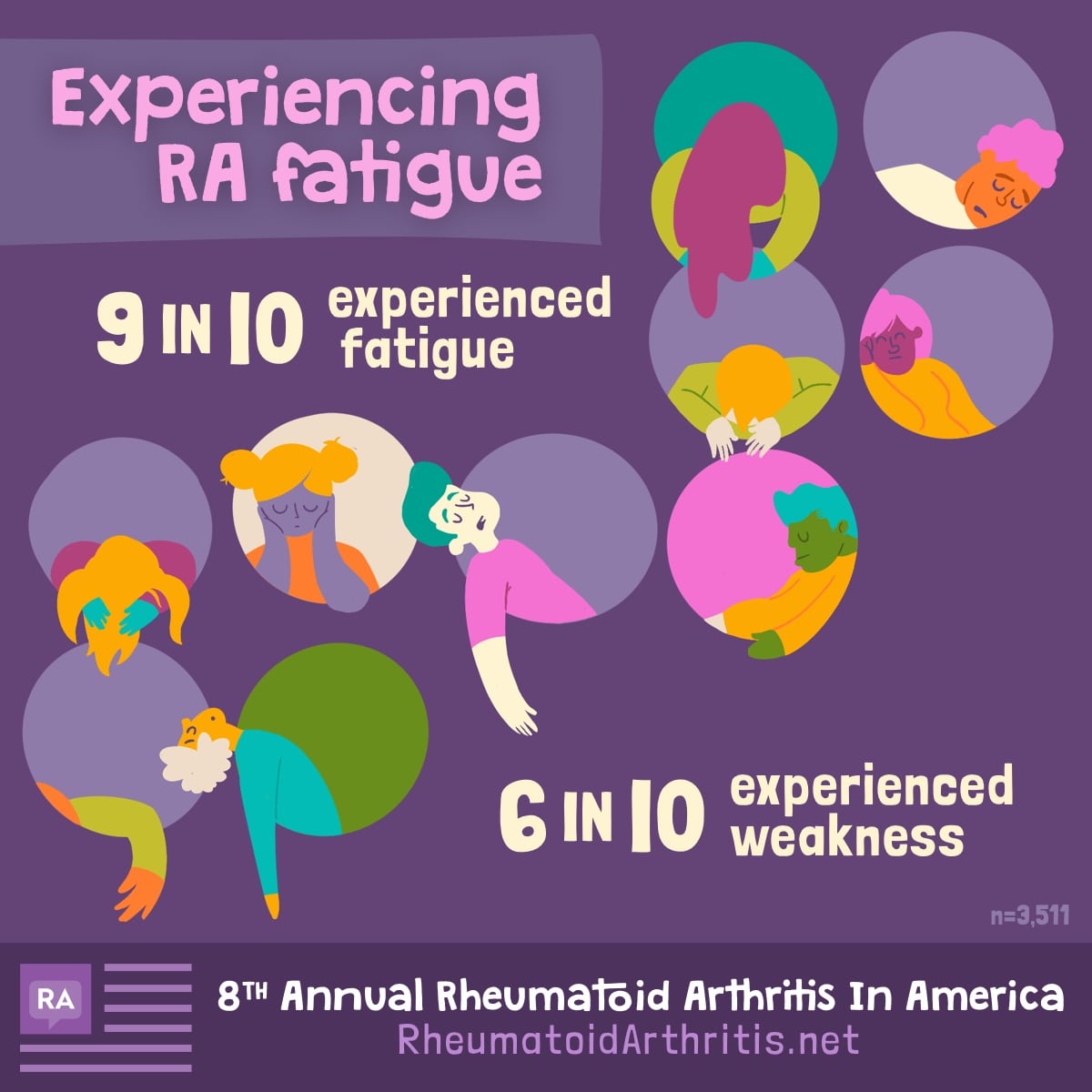
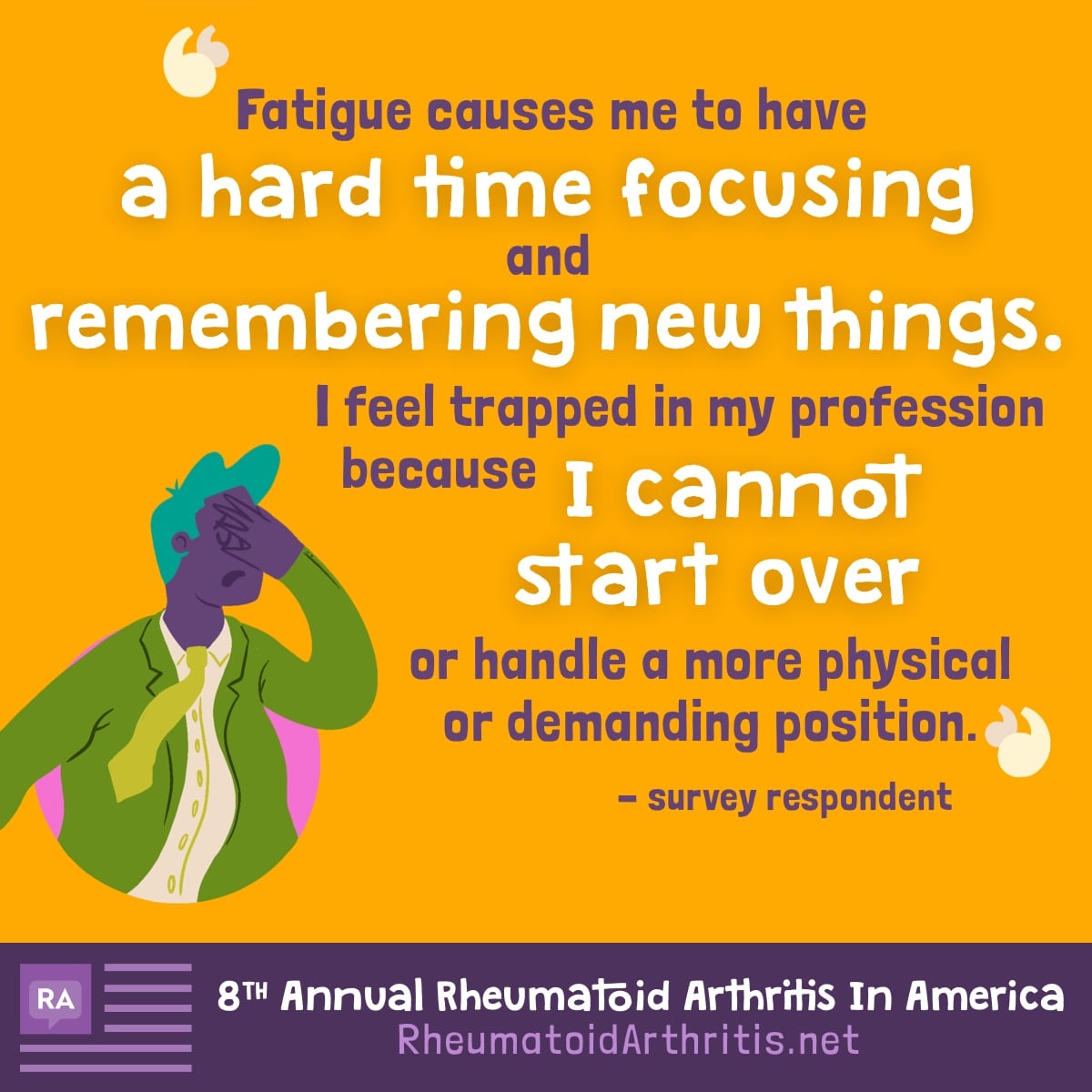
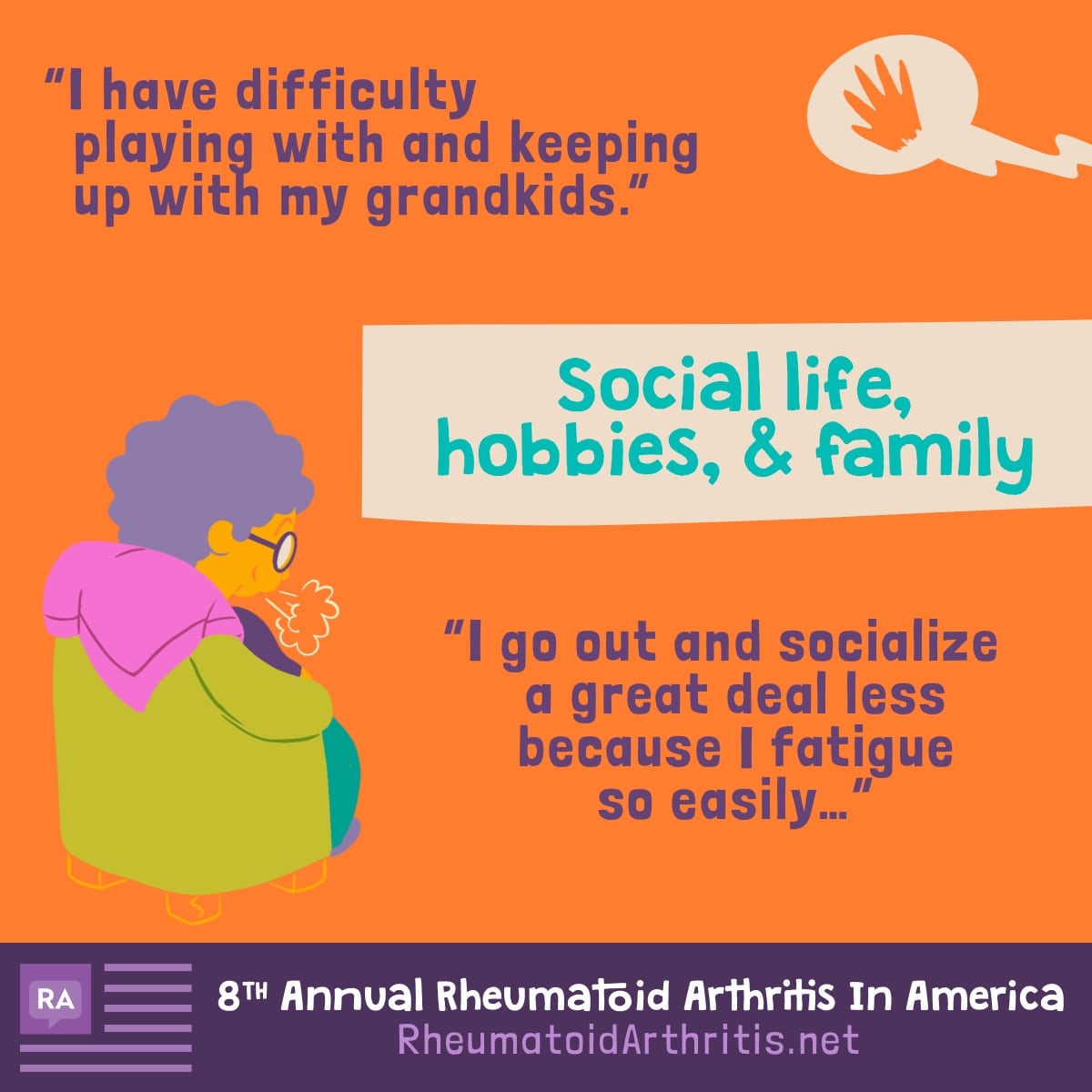
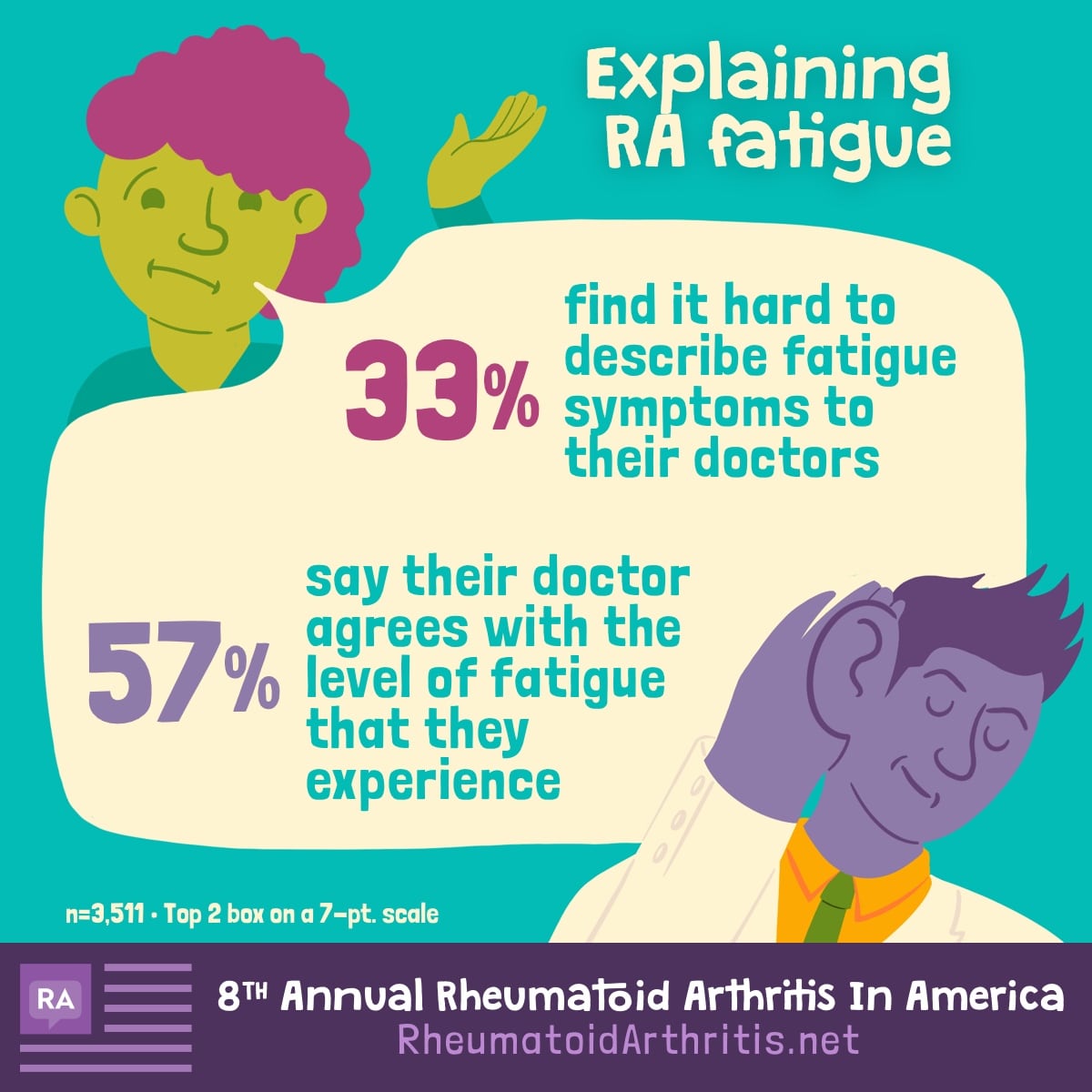
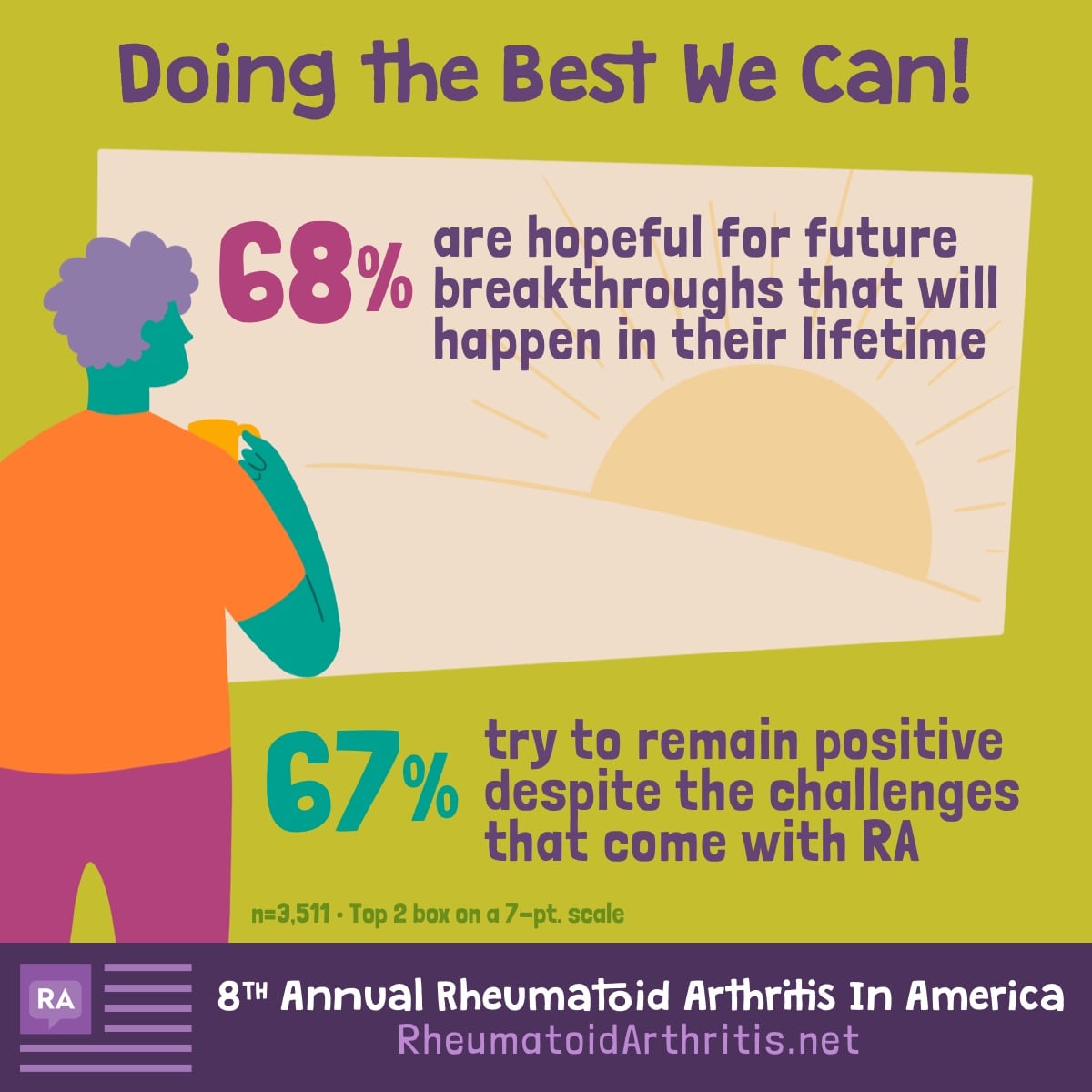
Join the conversation